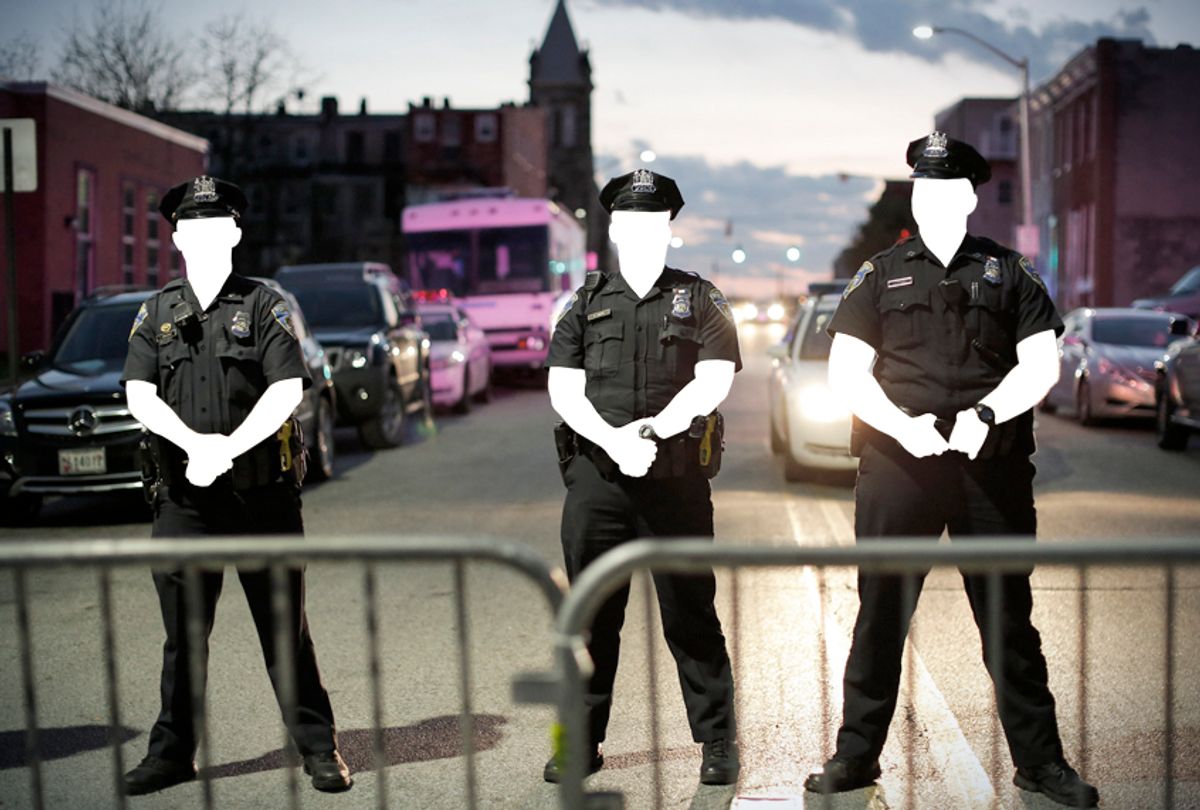Hate to say I told you so — but I told you so.
Let me take it back to the beginning. Back to when I watched my late brother and his homeboys separate the money into multiple piles. They sold crack, heroin and cocaine, exactly in that order. I rarely saw their drugs but I always — always — saw the money.
The first pile was my brother's. He was stashing that — as the boss, it was only right that he took first dibs. The second pile went to the lieutenants; they'd take their cut out and use the rest to pay the workers. Pile three was for product re-up, supplies and everything else you need to run a dope shop. And pile four got stuffed into a manila envelope and wrapped tight with rubber bands. They called that the "taxes." Of course they weren't actually paying taxes on their income or sales to the government, and they weren't setting aside contributions to a retirement plan. Their "taxes" went straight to the cops.
Yes, cops take money from drug dealers. Cops rape. Cops lie in their reports. Cops beat people. Cops sell drugs. Cops threaten citizens. Cops intimidate other cops. Cops are gang-affiliated; they'll snatch a blunt out of your hand and smoke it, hide extra guns in the dope house, aim their pistol at you for fun, plant drugs on you, make you sell drugs for them or with them, make you rob and steal, and then expect to be called "hero" no matter what they've done. Politicians from every side — from those as progressive as Obama to those as racist as Trump — break their necks to co-sign their hero status.
Earning a badge after applying for a job and completing a couple of months of training doesn't automatically make you a hero. People need to get this through their thick skulls — and finally, in Baltimore at least, they are.
Detective Maurice Ward, one of six detectives from Baltimore's disgraced Gun Trace Task Force who pleaded guilty to racketeering charges, testified in court on Tuesday. From the Baltimore Sun's report:
The video opens with a group of Baltimore police officers prying open a safe, revealing thick stacks of cash held together by two rubber bands each.
They call to their sergeant, Wayne Jenkins, who instructs the group not to touch anything and to keep the camera rolling — he wanted this one done by the book.
Except, Detective Maurice Ward testified Tuesday, the officers already had pocketed half the $200,000 they found inside the safe before the recording started, after taking a man's keys during a traffic stop and entering his home without a warrant. It was one of many illegal tactics Ward said the officers used as they chased guns and drugs across the city while skimming proceeds for themselves.
Critics of the police department have been trying to call attention to corruption for years, but no one listened. Now Ward, one of their own, is spilling the beans. Finally, people have to pay attention.
Eight Baltimore city police officers were indicted last year. Four, including Ward, are expected to testify. Their stories stretch far beyond overtime fraud, dipping into the deepest elements of criminal activity.
According to Ward, officers kept BB guns with them "in case we accidentally hit somebody or got into a shootout, so we could plant them," and tampered with criminal cases, even lying to the wife of a man they had locked up and stolen from, accusing him of infidelity so she would cut off her support. They planned robberies, drank alcohol on the job as they profiled African Americans, and still saw themselves as heroes. "Abuse of power" is an understatement here.
The case of slain homicide detective Sean Suiter in still unsolved, like so many other murder cases in Baltimore. Suiter was also set to testify against the Gun Trace Task Force. He was murdered back in November while investigating a murder with his partner, who claims to have little to no information about what happened, even though he drove Suiter to the hospital after he was hit. Who knows what type of information Suiter would have released?
Better yet, some of the cops on the disgraced Gun Trace Task Force are 15-plus-year veterans with histories of misconduct. What if they had been indicted before Freddie Gray's killing in 2015? How might a case like this have changed public perception around Gray's death? Even though they stopped Gray for no reason and then he died while in their custody, people still saw them, at worst, as heroes who made a mistake. Because if all cops are heroes, those cops couldn't have done anything intentionally malicious to cause Freddie Gray's death, right?
I'm happy that the narrative is finally changing. Oppressed black citizens of Baltimore and all over the country have been talking about corruption within police departments for years, but nobody listens to black citizens. Everybody listens to the feds, though. Now, these guys will finally end up where they've belonged for years: in prison.
Hate to say I told you so, but I told you so.



Shares